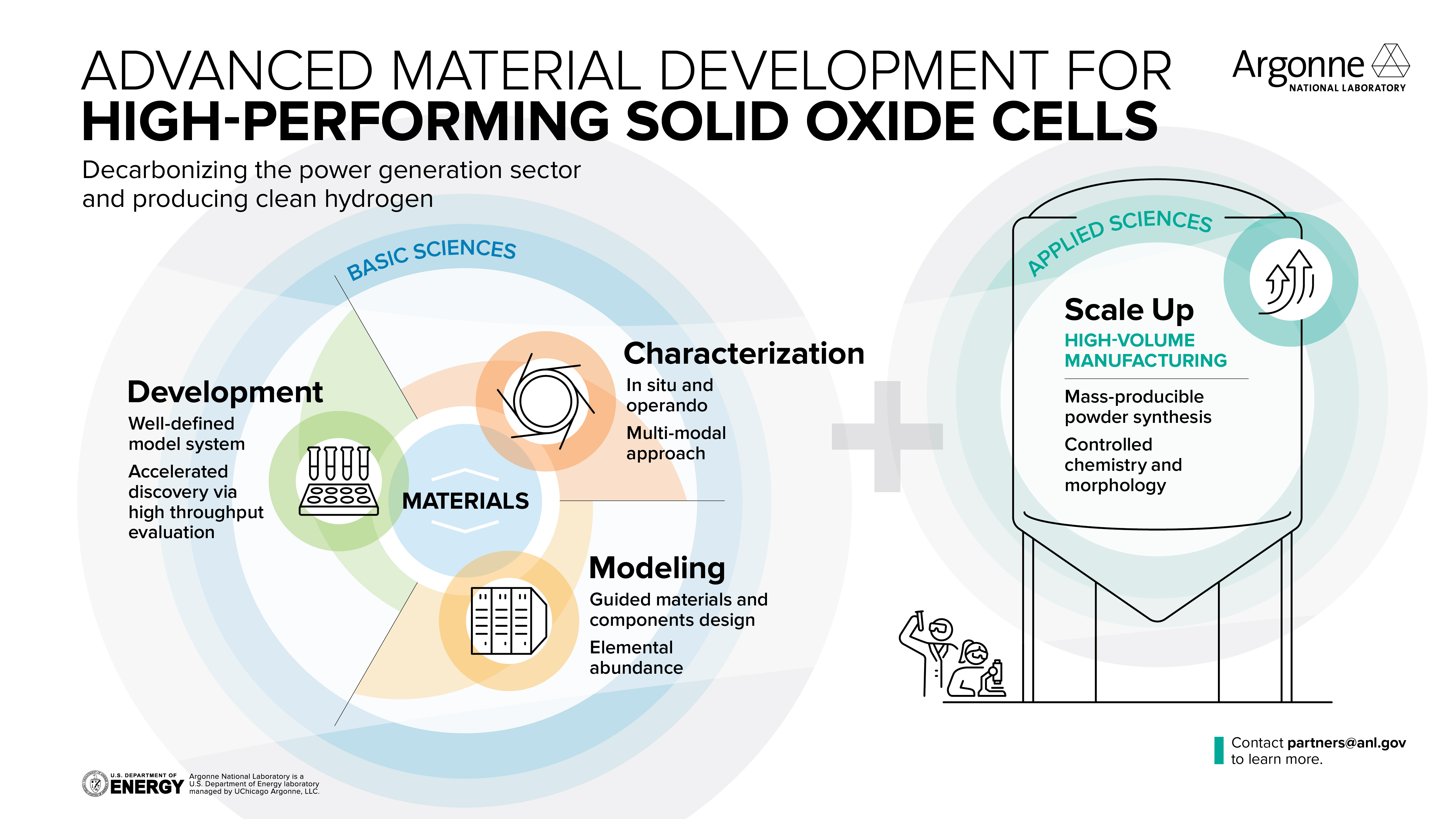The Challenge
Hydrogen is expected to be critical for the future U.S. energy portfolio. It can provide economic value and environmental benefits for diverse applications across multiple sectors. As the focus of the U.S. Department of Energy’s (DOE) Hydrogen Shot, there is a need to make key clean energy technologies affordable in the next decade, as well as create new jobs and tackle existing energy and climate challenges.
However, currently there are hurdles to meeting these goals. Producing hydrogen using high temperature electrolysis has unsatisfactory long-term performance and instability concerns. There are issues particularly with oxygen electrodes, interfacial void formation/delamination and material instabilities as well as impurity poisoning.
In addition, high fabrication and maintenance costs make hydrogen generation impractical today.
Argonne’s Solution
Research at Argonne National Laboratory can be synthesized to focus on affordable, reliable hydrogen production using high temperature electrolysis. By leveraging existing techniques from its battery R&D and scaleup capabilities of the Materials Engineering Research Facility (MERF), powder synthesis can be mass produced with precise control of properties. Scalable powder synthesis is essential to the development of lower-cost, more reliable solid oxide electrolysis cells which are needed to generate hydrogen from renewable power sources such as wind and solar.
Advanced materials characterization can be done using the Advanced Photon Source (APS). Additionally, Argonne has a long history of successful technology transfer, particularly with high temperature solid oxide cells and material development.
The Impact
Argonne’s basic and applied science expertise and capabilities are well positioned to develop, demonstrate and deploy end-use applications of hydrogen. High temperature solid oxide cells using clean hydrogen as a fuel will help decarbonize the power generation sector, which is the single largest carbon emission sector across the global-wide area network.
Why Hydrogen?
Hydrogen is part of a comprehensive energy portfolio enabling energy security and environmental benefits across multiple industries. In particular, high temperature solid oxide electrochemical cells capable of generating electricity at fuel cell mode and producing hydrogen at electrolyzer mode are predicted to be the focus of future clean energy conversion and storage applications.
Basic and Applied Science
Argonne’s facilities and research combine expertise in both basic and applied science that can be leveraged to decarbonize the power generation sector and to produce clean hydrogen. Basic science utilizing computational modeling, high-throughput evaluation with model system, and advanced characterization accelerates discovery of novel materials and improves existing materials. These basic science competencies lead to successful deployment of technology through low-cost, mass-producible materials synthesis capable of precise control of chemistry and morphology.
Goal
The result is advanced material development for high-performing solid oxide cells with superior electrochemical activity and longevity. The goal is decarbonization of the power generation sector and affordable hydrogen generation.
